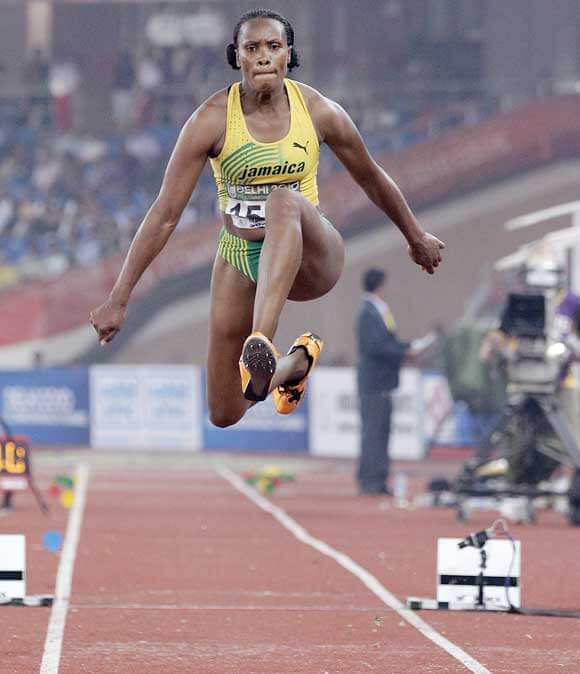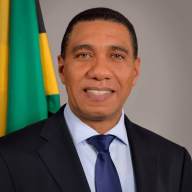NEW DELHI (AP) — The pool water is clean, but the toilets in the aquatics center are blocked. Ticket sales are on the rise but venues still seem mostly empty. There was a “major communications blunder” at the athletics track.
It’s Day 5 of competition at the Commonwealth Games, but based on a myriad of problems, everyday has seemed the same.
Commonwealth Games Federation president Mike Fennell on Friday said officials at the athletics stadium made a mistake the previous night by not telling the medalists in the women’s 100 meters that the event was under protest.
The original winner, Sally Pearson of Australia, was eventually disqualified.
“There was a problem … there was a major communication blunder,” Fennell said.
On a day when 43 gold medals were presented, sports seemed to be an afterthought.
Fennell is part of what is called the “games-time management committee.” It meets every morning, and on Friday they had several new and continuing issues to handle: a Pakistan official said that $550 had been stolen from his room at the athletes’ village; reports of blocked toilets at the swimming venue; poor quality of food for volunteers; airspace restrictions hindering television helicopters from covering the marathon and road cycling events.
And if 900,000 tickets have been sold, why do many of the stadiums appear nearly empty?
Previous problems in the lead-up to the games included construction delays, corruption allegations, concerns about security, outbreaks of Dengue fever and, perhaps the most damaging, complaints about unfinished and filthy accommodations in the athletes’ village just days before teams were due to arrive.
One dilemma sidestepped on Friday was the quality of the pool water at the aquatics center. The pool was originally thought to have caused a dozen or more cases of a stomach virus affecting mostly Australian and English swimmers.
Fennell said three pools were tested — including the main pool and warmup pool — and that the results “were in keeping with the standards that are required.
“There are no problems with the water in those pools,” he said.
Fennell added that a Commonwealth Games Federation doctor had spoken to several team physicians and they all agreed the problem did not stem from the quality of the pool water.
Fennell also said that the spiked security barrier which malfunctioned and slammed into a Ugandan team car, injuring three of the nation’s officials, would be “demobilized.”
In early athletics action at Jawaharlal Nehru Stadium, Jamie Adjetey-Nelson ran the second-fastest time in the 110-meter hurdles and had the second best throw in the discus to stay in the lead of the decathlon after seven events. The Canadian finished the hurdles in 14.76 seconds and threw the discus 45.21 meters to increase his total to 5,888 points.
The first of eight track gold medals on Friday’s program went to Diane Roy of Canada, who won the parasport 1,500 in 3 minutes, 53.95 seconds. Chineme Bibian Obeta of Nigeria was second in 4:09.29 and Anita Fordjour of Ghana took bronze in 4:18.83.
Australia continued its domination at track cycling, winning the men’s team sprint for its 11th gold. World champion Alison Shanks won the women’s individual pursuit, holding off Wendy Houvenaghel of Northern Ireland, with Canada’s Tara Whitten claiming bronze.
Sania Mirza lived up to local expectations by reaching the women’s final of the first tennis tournament ever held at the Commonwealth Games.
In the first batch of 11 finals on Friday night’s swimming program, Cameron van der Burgh of South Africa completed the 50-100 breaststroke double and Australia won three more gold medals to bring its total to 14 in the pool.
Van der Burgh won the 100 in 27.18 seconds. Glenn Snyders of New Zealand and Brenton Rickard each finished in 27.67 to share the silver.
Earlier, Geoff Huegill completed his return from a retirement and loss of 110 pounds to win gold in the 50 butterfly in 52.50. Ryan Pini of Papua New Guinea and Antony James of England dead-heated for silver.
Many of those venues were completed well after they were supposed to, which prevented many so-called “test events” from being held. Staging test events would have allowed officials to iron out many of the major problems they are being forced to deal with during these games.
“I don’t want to argue that if the stadiums had been delivered to the organizing committee earlier, it would have been better,” Fennell said. “There is no question about that.”

AP Photo/Lee Jin-man





















